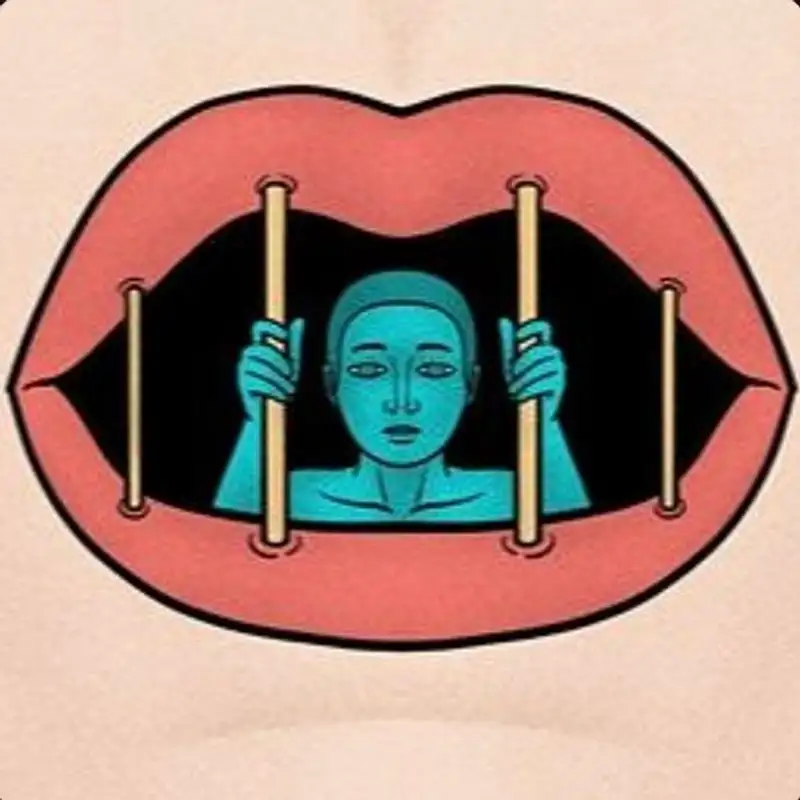I am a podcaster.
No. I am an Italian podcaster.
No, I am a Sardinian podcaster.
Why do I feel the need to specify that I am Sardinian?
It’s because my Sardinian identity has been stolen – by a government that convinced my Sardinian-speaking parents that speaking with me in their mother tongue was not a good idea, better to raise me in Italian, the language of the people who invaded and took over land, language and culture. Better to cut me out completely from my heritage.
Take my grandmother, she was illiterate and she only spoke Sardinian, while I was literate and fluent in three languages. Too bad none of them was…
Too bad none of them is Sardinian.
Too bad I have never spoken directly to my grandmother, but always only through my mum who had to be there to translate for me. For us.
I don’t know whether my grandmother would have liked to ask me how I was doing. I know I would have.
I don’t know whether she ever thought that it was a shame that we couldn’t communicate directly. I know, I have.
When I was living abroad, first in Germany and then in Australia, I used to call her every couple of months or so. My phone calls were pathetic as I was unable to say anything past
“Ciao Nonna, come stai? Che tempo fa?
Hi Grandma, how are you, what’s the weather like?”
She would reply something-something in Sardinian and I didn’t understand, and I would laugh nervously, and she would laugh and we would laugh together, and I never knew what to say and I never understood when to end the conversation, and so there were these long silences and giggling and then I always ended repeating “adiossu” which was my rendition of “goodbye” in Sardinian, “Adiossu nonna” - before hanging up.
There are so many things that I wish I had asked my Nonna, whom I have always only seen dressed in black – hair covered with a dark brown head scarf if she was venturing outside her home, running errands or taking the goats grazing.
I would have liked to ask her, how did she feel, growing up as an orphan and being married before turning 16. Or what was it like giving birth to eleven children and losing two, one in childbirth and one as a young man in his twenties, crushed to death by a piece of machinery and brought back to his native Sardinia inside a wooden box.
I would have liked to ask her about my Mum, sent to some rich relatives who lived in another village to work there as a servant, when she was aged 6.
Did you miss her, Nonna? And what was it like during the war Nonna? What about when the German soldiers commandeered the biggest part of your house? And what about that young soldier that my Mum always tells me about, the one that gave her chocolate and cried looking into her toddler eyes…
Today I would love even just to have a recording of our awkward conversations, our painful long-distant-calls. I have none, of course. Those were times of phone boxes, before mobile phones, before small recording tools.
Have you noticed anything strange since I started talking?
Have you registered my strong accent?
Have you realised that I am speaking in English?
I mean, have you noticed that I am complaining about my inability to communicate with my grandmother, and that I am doing this not using that native language of mine - forced onto me by my Sardinian-speaking parents – but that I am using a third language, your language, I mean, even if English is not your native language, you are able to understand what I am saying because I am using a common language, the same language of most of the existing podcasts, the language in which most of the internet is written anyway.
So, let me recap: I use English to complain about my Sardinian parents for raising me in Italian. And by doing so I add leverage to the English language – the same leverage that I recognise as being the reason for its cultural hegemony.
Because, let’s face it. For the simple fact that I studied in Italy, and Italians are fixated with grammar, I can read and write in English better than your average native speaker. I remember an Italian friend of mine who attended some classes to learn English in Melbourne, and he run away horrified because someone had asked the teacher to explain what was ‘the’ and the teacher had replied that it was a pronoun. THE. A pronoun.
So, despite the fact that it is not my native language, my written English is excellent and my spoken English is not bad either, if you can get over the accent. But I resent having to use this language in order to have my work heard and appreciated.
Because, you see, Italy has just only discovered podcasts and its audience isn’t really demanding, yet. So I have the choice to tell about my Grandmother in Italian – speaking to a limited and mostly undemanding audience, or to ignore my native language to jump into the arena of English speaking podcasts - hoping to be seen and noticed.
But, frankly, whom am I kidding? I know that as an independent producer my chances are small. Even taking part in festivals, there are people with stories far more urgent and dramatic than mine, in fact I am not as eager to participate, not any more.
So, why am I doing this? Now? Today? I don’t know. Or maybe I do. I think it’s because suddenly I’m giving IT a name, I realise that I am resenting as never before those who took away my past, my heritage, those who made it impossible for me to ask my Grandmother, hey Nonna, how does it feel?
